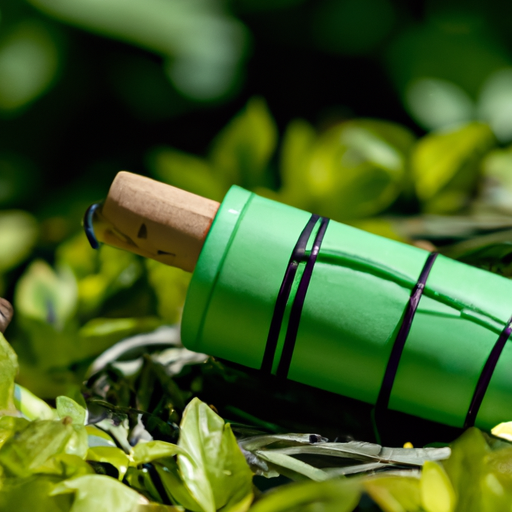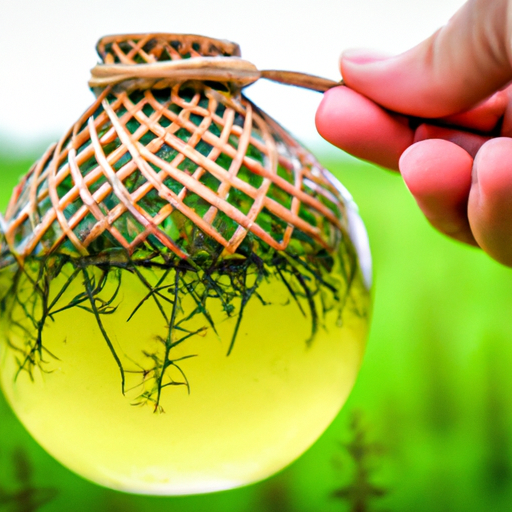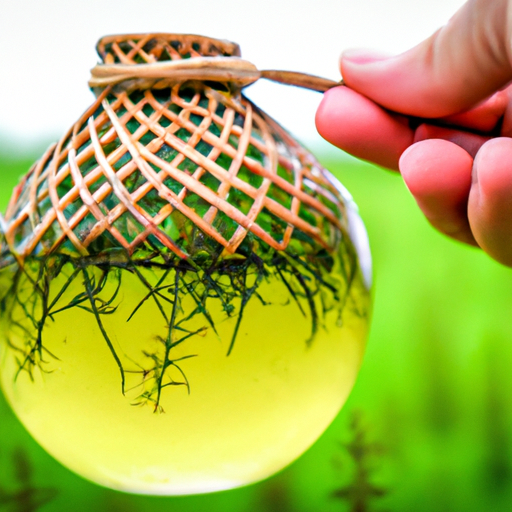Looking to keep pesky flies at bay without the use of harsh chemicals? Look no further! In this article, we will explore ten natural fly repellents that are not only effective, but also safe for you and your family. From simple household ingredients to plant-based solutions, these all-natural remedies are sure to keep your space fly-free all summer long. So, say goodbye to annoying buzzing and hello to a fly-free environment with these natural fly repellents that actually work!

Essential Oils
Essential oils are highly concentrated plant extracts that have many uses, one of which is repelling flies. They are derived from various plants and have been used for centuries for their aromatic and therapeutic properties. When it comes to fly repellents, some essential oils have shown great efficacy. Here are three essential oils that can help keep those pesky flies away.
Lavender
Lavender essential oil is not only known for its calming and soothing properties but also for its ability to repel flies. Flies are naturally averse to the scent of lavender, making it an excellent natural fly repellent. You can use lavender essential oil in a variety of ways to keep flies at bay. Dilute a few drops of lavender oil with water in a spray bottle and spritz it around your home, particularly in areas where flies tend to gather, such as windows and doors. Alternatively, you can soak a cloth in a diluted lavender oil solution and hang it near open windows or entrances to deter flies from entering your space.
Peppermint
Peppermint essential oil not only has a refreshing and invigorating scent but also acts as a potent fly repellent. The strong, minty fragrance of peppermint is known to repel flies and other insects. To create a homemade fly repellent spray, mix a few drops of peppermint oil with water and spray it around your living space. You can also soak cotton balls in peppermint oil and place them in areas where flies are commonly found, such as near garbage cans or outdoor dining areas. The refreshing scent of peppermint will help keep flies away naturally.
Eucalyptus
Eucalyptus essential oil, derived from the leaves of the eucalyptus tree, is another powerful fly repellent. The strong, camphor-like scent of eucalyptus is highly effective in deterring flies. To make a fly repellent spray, combine a few drops of eucalyptus oil with water in a spray bottle and mist it around your home or outdoor areas where flies are a problem. Additionally, you can soak cotton balls in eucalyptus oil and place them strategically to keep flies at bay. Enjoy the fresh aroma of eucalyptus while keeping flies away naturally with this effective essential oil.
Herbs and Plants
If you prefer natural alternatives to chemical-based fly repellents, herbs and plants can be an excellent option. Many herbs and plants have natural scents that flies find unpleasant, making them excellent fly repellents. Here are three herbs and plants that can help you keep your surroundings fly-free.
Basil
Basil is a popular herb known for its culinary uses, but it also has natural fly-repellent properties. Flies dislike the scent of basil, so planting basil in your garden or placing potted basil indoors can help repel flies. You can also crush fresh basil leaves and rub them on your skin to keep flies away while enjoying the pleasant aroma.
Mint
Mint is not only a refreshing herb but also an effective fly repellent. Flies are repelled by the strong scent of mint, making it an excellent choice for keeping them at bay. Planting mint in your garden or keeping potted mint plants indoors can help deter flies. You can also crush mint leaves and place them in areas where flies tend to gather, or make a mint-infused spray by boiling mint leaves in water and using the strained liquid as a fly repellent.
Lemon Balm
Lemon balm, as its name suggests, has a vibrant citrus scent that flies find unappealing. Planting lemon balm in your garden or keeping potted lemon balm indoors can help keep flies away naturally. You can also crush lemon balm leaves and rub them on your skin or use them in homemade fly repellent sprays. Enjoy the fresh scent of lemon balm while keeping flies at bay.
Citrus Fruits
Citrus fruits not only provide numerous health benefits but also have fly-repellent properties due to their strong citrusy scents. Flies find the smell of citrus fruits unpleasant, making them effective natural fly repellents. Here are three citrus fruits that can help you keep flies away.
Lemon
Lemon, with its zesty and refreshing fragrance, can repel flies effectively. Rubbing lemon slices on your skin can act as a natural fly repellent, and placing bowls of lemon slices in fly-prone areas can deter flies from entering your space. You can also extract lemon juice and mix it with water to create a fly-repellent spray that can be used both indoors and outdoors.
Lime
Lime, similar to lemon, has a strong citrus scent that repels flies. Rubbing lime slices on your skin or placing bowls of lime slices in areas where flies gather can help keep them away naturally. Lime juice can also be mixed with water to create a fly-repellent spray that can be used in your living space or outdoor areas.
Orange
Orange, with its sweet and tangy aroma, can also be used as a natural fly repellent. Rubbing orange slices on your skin or placing bowls of orange slices in fly-prone areas can help repel flies. Orange juice can also be mixed with water to create a fly-repellent spray that can be used indoors or outdoors.
Vinegar
Vinegar is a versatile and affordable household item that has many practical uses, including repelling flies. The strong odor of vinegar is highly effective in deterring flies, making it an excellent natural fly repellent. There are two commonly used types of vinegar for fly repellent purposes: apple cider vinegar and white vinegar.
Apple Cider Vinegar
Apple cider vinegar is known for its numerous health benefits, but it can also be used as a fly repellent. Flies are repelled by the scent of apple cider vinegar, so placing bowls of apple cider vinegar in fly-prone areas can significantly reduce their presence. You can also mix apple cider vinegar with water and use it as a fly-repellent spray around your home or outdoor spaces.
White Vinegar
White vinegar, a pantry staple, can also be used as a fly repellent. The pungent smell of white vinegar helps repel flies effectively. Mix white vinegar with water and use it as a spray in areas where flies tend to gather. You can also soak a cloth in diluted white vinegar and hang it near windows or entrances to deter flies from entering your living space.

Garlic
Garlic not only adds flavor to your dishes but can also help repel flies due to its strong aroma. Flies find the smell of garlic unpleasant, making it an effective natural fly repellent. Crush a few garlic cloves and place them in fly-prone areas to deter flies. You can also create a garlic-infused spray by boiling garlic cloves in water, straining the liquid, and using it as a fly repellent spray.
Cloves
Cloves have a strong and distinctive scent that flies find repulsive. Placing whole cloves in areas where flies gather, such as near doors and windows, can deter flies from entering your space. You can also create a fly repellent spray by boiling cloves in water, straining the liquid, and using it to spray around your home or outdoor areas.
Cinnamon
Cinnamon not only adds warmth and flavor to your recipes but also acts as a natural fly repellent. Flies find the scent of cinnamon unpleasant, making it an effective fly deterrent. Placing cinnamon sticks in fly-prone areas or using cinnamon essential oil in a homemade fly repellent spray can help keep flies away naturally. Enjoy the comforting aroma of cinnamon while keeping your surroundings free from flies.
Crushed Mint Leaves
As mentioned earlier, mint leaves have fly-repellent properties. Crushing mint leaves and placing them strategically around your home or outdoor areas can help deter flies. You can also create a homemade fly repellent spray by boiling crushed mint leaves in water, straining the liquid, and using it as a natural fly repellent.
Cucumber
Cucumbers have a fresh and crisp scent that flies find unpleasant. Placing slices of cucumber in fly-prone areas, such as near garbage cans or outdoor dining areas, can help repel flies. You can also mix cucumber juice with water to create a fly-repellent spray that can be used both indoors and outdoors.
Camphor
Camphor has a strong, distinctive odor that flies dislike. Placing camphor tablets in areas where flies gather, such as in outdoor seating areas or near doors and windows, can help keep flies at bay. However, it is important to use camphor with caution and follow the instructions on the packaging.
In conclusion, when it comes to repelling flies naturally, there is a wide range of options available. Essential oils, herbs, plants, citrus fruits, vinegar, garlic, cloves, cinnamon, crushed mint leaves, cucumber, and camphor all have properties that can deter flies effectively. By incorporating these natural fly repellents into your living space and outdoor areas, you can enjoy a fly-free environment without the need for chemical-based repellents. Try out different methods and see what works best for you in keeping those annoying flies away. Happy repelling!




